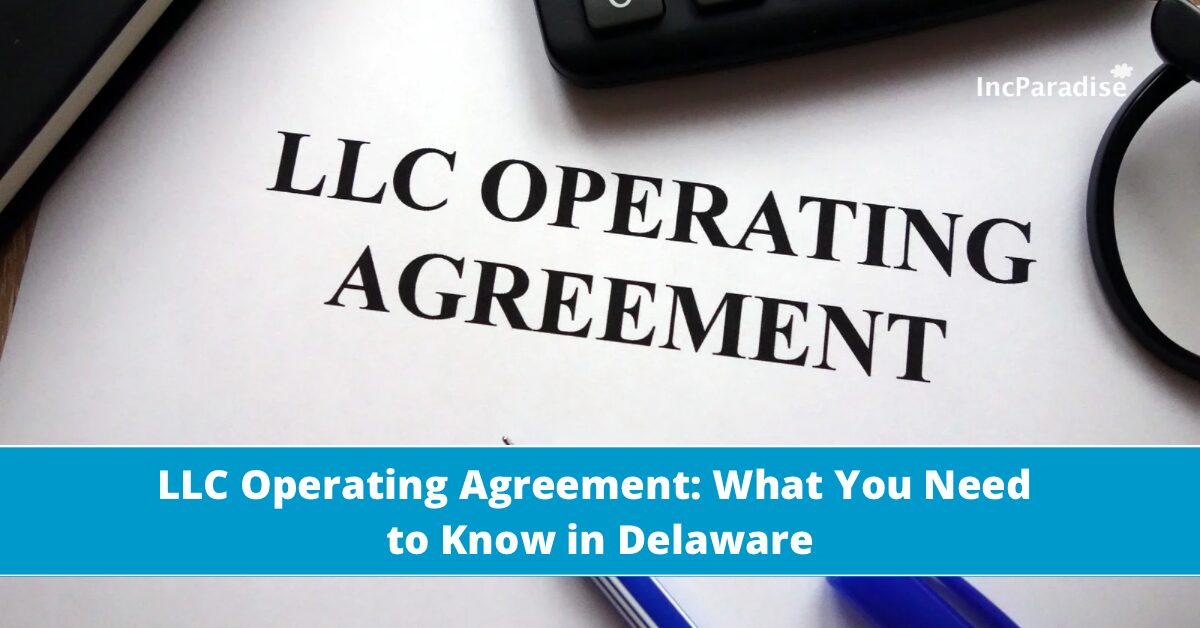Transferring the ownership of a Limited Liability Company (LLC) is a crucial process that requires proper planning and implementation. Whether selling a business, adding a new member, or transferring ownership to a departing member, understanding the steps involved is important and will ensure an easy shift of ownership. The process of transferring ownership can be complicated and may involve legal, financial, and tax considerations.
This article will provide a step-by-step overview of how to transfer LLC ownership.

LLC Ownership Transfer
A Limited Liability Company (LLC) is a type of business structure that offers personal liability protection to its members while entitling them to dodge the double taxation that is usually associated with corporations. The ownership interests in an LLC can change due to various reasons, such as:
- Addition of new members
- The departure of existing ones
In such cases, an ownership transfer may be needed. We can say that an LLC ownership transfer refers to the process of transferring ownership interests in an LLC from one member to another.
Types of ownership transfer: partial and full transfer
There are two particular types of ownership transfer: partial transfer and full transfer.
- Partial Transfer: when a member transfers only a part of their ownership to another member then that transfer is known as partial transfer. Just assume, a member who owns a 60% stake in an LLC may decide to transfer 30% of their stake to another member.
- Full Transfer: when a member transfers all of their ownership interest in the LLC to another member then it comes under the category of a full transfer of an LLC. When a member who owns a 70% stake in an LLC chooses to transfer their full stake to another member.
Legal and tax implications of ownership transfer
Ownership transfers in LLCs can have important legal and tax implications. So, it is important to understand the transfer ownership of LLC tax consequences as well as the legal complications it might trigger before proceeding with any transfer.
Here are some of the legal and tax considerations that you must keep in mind:
- Legal Implications: An ownership transfer requires the LLC to file a new operating agreement or an amended agreement that contains all the changes that occurred in the ownership of the company. This particular agreement must summarize the new ownership procedure, the rights and obligations of the new members, and any other additional changes that may occur from the transfer.
- Tax Implications: The IRS considers an ownership transfer as a taxable occurrence. This simply means that the transfer may initiate capital gains taxes, which are based on the difference between the original purchase price of the ownership interest, and the price at which it is being sold or transferred. Additionally, the transfer may affect the LLC’s tax classification and may result in changes to the LLC’s tax obligations. These reasons are enough to elaborate on the tax consequences caused by the partial or full transfer of an LLC.
Importance of written agreements and legal documentation
Written agreements and legal documentation are important when it comes to LLC ownership transfers. Let us explain why.
- Legal Protection: A well-drafted written agreement and legal documentation can provide legal protection for each party involved in the ownership transfer. This can help prevent any further disputes and it also ensures that all parties understand their rights and responsibilities.
- Clarity: Written agreements and legal documentation can help guarantee that all parties are clear on the terms of the transfer, including the price, the timing, and any conditions that must be met before the transfer process.
- Compliance: Written agreements and legal documentation can also help guarantee that the LLC remains in compliance with state and federal laws and regulations.
Steps for Partial Ownership Transfer
Transferring partial ownership of a Limited Liability Company (LLC) can involve a few legal and administrative steps. Here are the general steps to transfer LLC ownership partially.
1. Review your Operating Agreement
Before initiating a partial ownership transfer, study your LLC’s operating agreement thoroughly. It will summarize detailed conditions for transfers including whether approval is required, how the transfer process should be started, and whether the remaining members have the right to buy the leaving member’s interest first.
2. Determine the Purchaser
The LLC members must identify the purchaser of the ownership interest. This can be an existing member, any outside investor, or a new member depending on your preference.
3. Specify the Purchase Price
All the members must agree on the purchase price for the ownership interest. This can be based on the existing value of the LLC or any price. If there are multiple members, you may need to get a professional examination of the LLC’s value to ensure a fair price deal.
4. Draft and Sign a Purchase Agreement
Once the purchase price is decided, draft and sign a purchase agreement that summarizes the terms and conditions of the transfer. This agreement must contain the actual names of the parties that are involved, the percentage of ownership interest being transferred, the decided purchase price, and the payment duration. It should also summarize any additional conditions for the transfer, such as contingencies on financing or permission from regulatory authorities.
5. Amend the Articles of Organization
Depending on the region where your LLC is located, you may need to amend the Articles of Organization to showcase the change in ownership. This usually refers to filing a Certificate of Amendment with the Secretary of State office. However, this condition may vary from place to place.
6. Edit the Operating Agreement
After the transfer is complete, you should edit the LLC’s operating agreement to indicate the new ownership structure. This should contain the updated ownership percentages, voting rights, and profit distribution among owners and other members of the company.
7. Inform any relevant parties
Lastly, you should inform any relevant parties regarding the ownership change. This list might include:
- customers
- vendors
- supplier
- lenders
This also includes updating any legal and tax documents to show the new ownership structure.
Steps for Full Ownership Transfer
Transferring the full ownership of a Limited Liability Company (LLC) can involve several legal and administrative steps. These steps will tell you how to transfer LLC ownership completely.
1. Check your Operating Agreement
Before initiating a full ownership transfer, you should review your LLC’s operating agreement. It may summarize the various provisions for transfers including whether consent is required, how the transfer process should be initiated, and whether the remaining members have the right of first denial to purchase the parting interest.
2. Acquire Valuation of the LLC
You will need to have a professional valuation of the LLC to determine its fair market value. This is generally done by an independent appraiser who will consider different factors such as the LLC’s assets, liabilities, revenue, and cash flow. The appraisal report will be treated as the basis for specifying the purchase price of the LLC.
3. Draft and Sign a Purchase Agreement
Once the purchase price and terms are set fairly you can draft and sign a purchase agreement that summarizes the terms and conditions of the transfer. This agreement should include the actual names of the parties involved, the purchase price, the payment terms, and any additional conditions for the transfer, such as regulatory approval or financing.
4. Transfer Ownership
Once the purchase agreement is signed, you may transfer ownership of the LLC to the buyer. This typically involves signing over the LLC’s ownership stake, transferring any necessary licenses, access, and registrations to the buyer, and revising any relevant records, including bank accounts, tax records, and business registrations.
5. Update Legal and Tax Documents
After the transfer is complete, you should update any legal and tax documents to reflect the change in ownership. This may include filing new articles of organization with the state’s Secretary of State office, obtaining a new tax identification number, and updating any contracts, licenses, or permits associated with the LLC.
6. Notify Relevant Parties
Ultimately, you should notify any relevant parties of the ownership changes, especially customers, dealers, suppliers, and lenders. This may include revising any legal or tax documents to reflect the new ownership system.
Additional information
Here are some additional details that you must know!
Tax considerations
It’s favorably suggested that you should acquire tax advice from a qualified tax specialist before transferring the ownership of an LLC.
Tax implications can differ depending on the specific circumstances of the transfer, including the tax status of the LLC and the method of payment for the purchase price.
Notify IRS, Registered Agent, Banks
Notify the IRS: You should notify the Internal Revenue Service (IRS) in the event of a change in Ownership. This can be done by filing a form called the Change of Address, or Responsible Party – Business, with the IRS. This form is used to inform the IRS of a change in the LLC’s reliable party, which is the person who regulates, manages, or directs the LLC and the disposition of its funds and assets.
Update Registered Agent Information: You should also update the LLC’s registered agent information with the state’s Secretary of State headquarters. The registered agent is accountable for receiving legal documents, such as lawsuits or summonses on behalf of the LLC. It’s crucial to confirm that the registered agent’s data is up-to-date to avoid missing important legal notices.
Update Bank Accounts and Credit Cards: You must update any bank accounts, credit cards, or other financial accounts associated with the LLC to reflect the difference in ownership. This includes updating the authorized signers on the accounts and switching any login information or passwords.
Need any Assistance with the LLC Ownership Transfer?
Transferring the ownership of your Limited Liability Company (LLC) can be a complex process, but by following a step-by-step guide, you can navigate it successfully. It‘s essential to start by reviewing your operating agreement to understand the rules and procedures governing ownership transfers within your LLC, and do so according to what we learned in this article.
Remember that transferring the ownership of your LLC requires careful planning, thorough documentation, and adherence to legal requirements. Seeking professional advice and assistance would be a great decision.
If you need any assistance with an LLC ownership transfer, you can Contact Incparadise anytime! We have a skilled team that can help you achieve your goals and will make the process easier for you.








